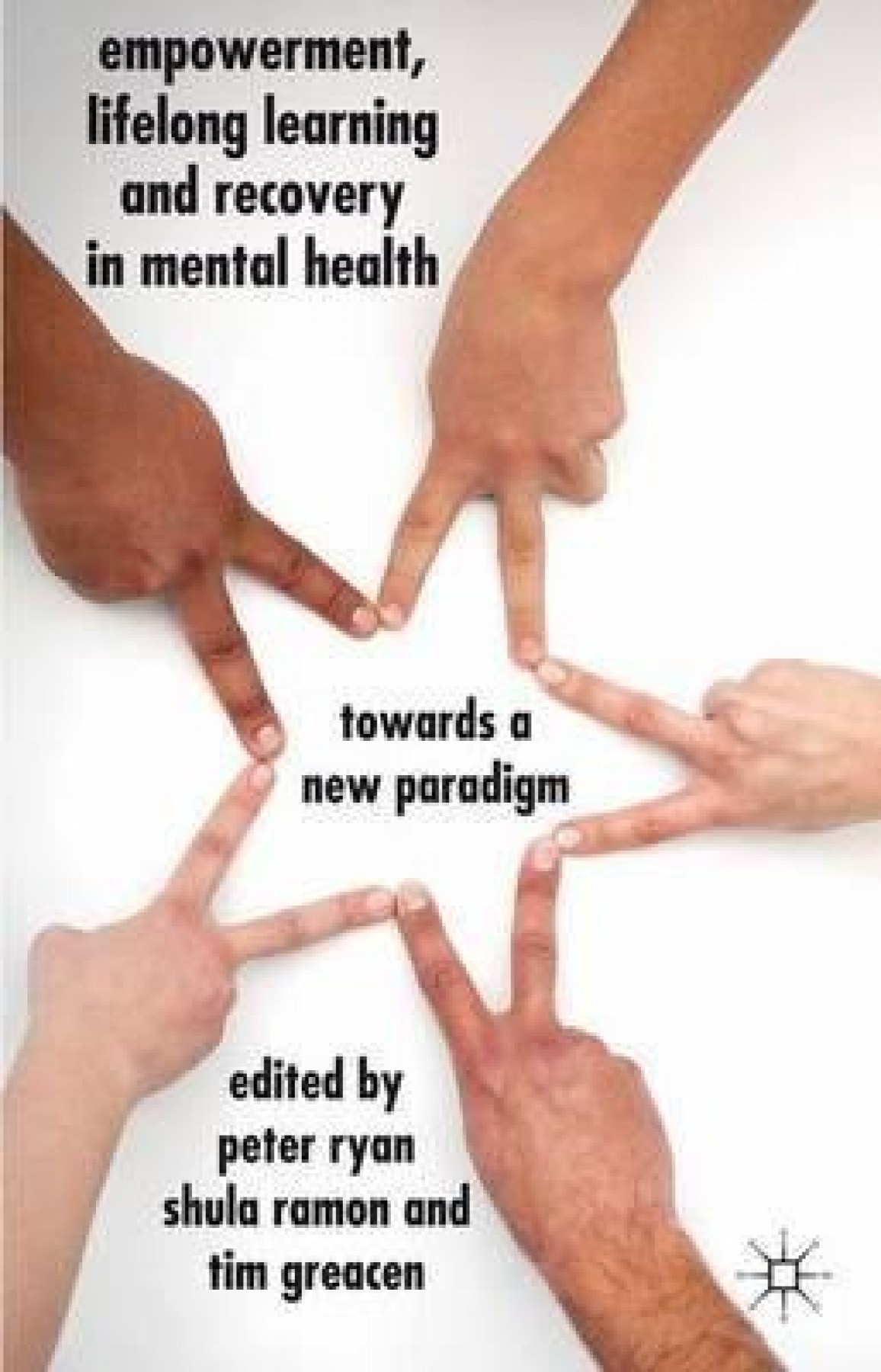Don't get put off by the bland cover of this text or the wordy title: Empowerment, Lifelong Learning and Recovery in Mental Health: Towards a new paradigm. This academic text actually contains some very interesting and thought-provoking essays written by a range of service users and clinicians working in mental health.
I suppose the benefit of having such a long title is that it certainly spells out what the book is about. As the introduction states, the thesis of the book is that the four concepts of empowerment, lifelong learning, social inclusion and recovery are closely connected and “that together they contribute to a new paradigm in mental health, one that locates the service user as the central driver of their own life”.
I couldn’t agree more, so, as arrogant as it sounds, I wondered at first what new things the authors could tell me about this concept. As it turned out – a lot! The book is divided into three chapters – recovery, social inclusion and employment, empowerment and lifelong learning – and there are a series of essays per chapter.
My favourite section was the recovery section, and the accounts written in first person. I personally think many an academic text would be livened up by authors only being allowed to write in first person!
Highlights for me were Helen Glover’s thoughtful and challenging essay where she asks, is it a new paradigm or old paradigm dressed in sheep’s clothing? Are we just simply repackaging the same system? The language may change, but the values don’t. However, rather than leaving the reader in a cynical slump, she provides some excellent service assessment tools to help practitioners determine how enabling their service actually is.
Another highlight was clinical social worker Robert Surber’s honest account of his recovery from his own professional stigma. He acknowledges the insidiousness of professional stigma and bravely outlines his shocked realisation that he did not know how to relate to people with mental illnesses as equals. He is now committed to ensuring service users are fully integrated as professionals and provides best practice suggestions on how to do this.
I didn’t find the other two chapters as interesting, however chapter two is a recommended read if you want to discover more about international employment initiatives such as the Trieste project and the IPS model. As is chapter three, if you want to read in detail about the importance of lifelong learning and in particular the EU project EMILIA. I will leave this project tantalizingly unexplained.
In summary, this book is a useful resource to have on hand at your local library. I would particularly recommend chapter one for people who have an interest in reducing stigma within the mental health sector and are excited by the idea (as I am) that we are shifting towards a brave new paradigm.
Reviewed by Philippa Coyle, Business Development Manager and Like Minds Health Promoter at Mind and Body Learning and Development and Mind and Body Consultants
Philippa has worked in the mental health and social services sector for more than a decade. She has an MA in English Literature from the University of Auckland and holds a Postgraduate Certificate in Management Studies (Mental Health) from the University of Waikato.

